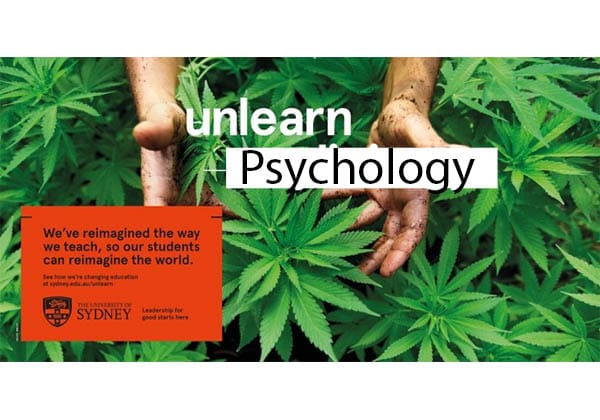ABSTRACT
On the mixed experiences of their cohorts’ time in the department which should theoretically understand mental health.
INTRODUCTION
Despite entering with different cohorts (2017, packed into Wallace Lecture Theatre, and 2020, navigating a new degree through Zoom), we remember being first-year Psychology students: hoping to expand our knowledge about the people around us and being a little shocked at the intensity of the department. Now, as second and third years, able to compare our experiences with other schools, it is evident that the USyd Psychology department remains consistent in its over-expectation and under-preparation of students. We hope to bring to light and validate the ongoing struggles in engaging with content that we would otherwise deem to be of high interest.
METHOD & RESULTS
Like good Psychology students, we did proper scientific research on our cohorts — i.e. we made a Google survey of questions surrounding topics important to us (scientific research red flag #1): simple extensions, assessment types, critical thinking, mental health, and care. Our interpretation of these 21 responses is riddled with researcher, selection and publication bias. We can feel Caleb Owens shaking his head, but the personal experiences of those who are impacted firsthand by the department mustn’t be overlooked in favour of scientific rigour.
DISCUSSION
Our analysis is framed by the particularly astute observation of one respondent: “the focus appears to be on filtering students down from hundreds in the first year.” Indeed, the department only accepts around 85 students for the yearly honours cohort, which at USyd replaces the typical 4th year of study required for a Masters degree and psychologist registration, fostering an inherent sense of competition.
It begins early. In first and second year, each unit involves three weekly hours of lecture content on separate days (plus tutorials) — a study load that is unfeasible for many, particularly STEM students already juggling long lab hours, and more generally during research report season. Lectures and tutorials surrounding memory often reiterate that learning is enhanced through immediate feedback and practise. It remains questionable then, how helpful the department is in aiding student success, with research report marks generally released long after anyone cares about the feedback, and final examinations having no past papers or practise to aid preparation.
The department also doesn’t offer simple extensions — a blanket ban that is not permitted within USyd’s Coursework Policy. Of our respondents, 12 noted never having applied (despite some needing to) because they were explicitly told that attempts would not be accepted, which was the case for the 2 that had. Thus, students must submit sub-par work, or go through USyd’s infamously rigid and stressful special considerations process. Those struggling with their mental health (or general stressors such as juggling jobs, family responsibilities, sexual violence, large courseloads, extracurriculars, and maintenence of a work-life balance) without access to a psychologist to provide the required proof are left in the lurch.
USyd is an institution that prides itself in the process of ‘unlearning’, and yet the way that psychology is taught remains conventional. The only unlearning is evident in announcements from lecturers instructing the cohort to “forget what you were taught last year, as this is how [topic/theory at hand] is actually supposed to be.” While it can be expected that an ever-growing discipline would constantly require one to update their knowledge, this isn’t always the case. Outdated theories and practises (e.g. eugenics, IQ tests, and BMI) are taught with minimal critique, mental health is framed around productivity under capitalism, and police violence and racism are approached liberally. The academics who teach these topics tend to point out the relevant critiques, but the way that the content is assessed and structured in the syllabus renders it a mere side note.
“…I don’t really feel like there has been much room for critical thinking.” responded one student. “They give us many opportunities to pick between theories or ideas that appeal to us… but I wouldn’t say their research and scientific process focus has aided my critical thinking much.” This forces students to develop crucial critical thinking by themselves, without guided learning experiences.
Being an elitist institution, USyd prides itself on maintaining its academic reputation, bolstered by their consistent inclusion in the QS World University Rankings, whose selection criteria focuses heavily on measures such as “citations per faculty.” This has influenced the prioritization of research in psychology. One respondent noted: “it seems like this entire degree… only equips you to do research, and not practice.” Indeed, we can attest to the disappointment of feeling unequipped to help handle the under-funded and under-staffed mental health crises which surround us despite years of study in what should be the relevant realm.
The event that motivated the writing of this article was during a subject which covers topics such as sexual and domestic violence. The content warnings given were insufficient: general, in terms of content type and location during class, requiring students to risk distress, or skip the entire class (as though survivors don’t already have to skip classes to manage trauma and avoid perpetrators). The coordinator, notified of this, dismissed the recommendations given because “the literature on the efficacy of content warnings is a bit dubious.” Psychology students must grapple with distressing content but the impact it may have on their wellbeing is clearly overlooked. Thus, this over-focus on research does more harm than good for students who deserve for their educators to care for them.
CONCLUSION
It is unsurprising that the result of these failures is a diminished sense of wellbeing among many students. As one respondent put it: “it is ironic that in order to help people with their mental health, you need to sacrifice aspects of your own”. Of course, not all psychology students feel this way — our survey demonstrated some are satisfied with the psychology department. However, large proportions of students (ourselves clearly included) remain dissatisfied, hurt, and let down — any number feeling this way is too many.





